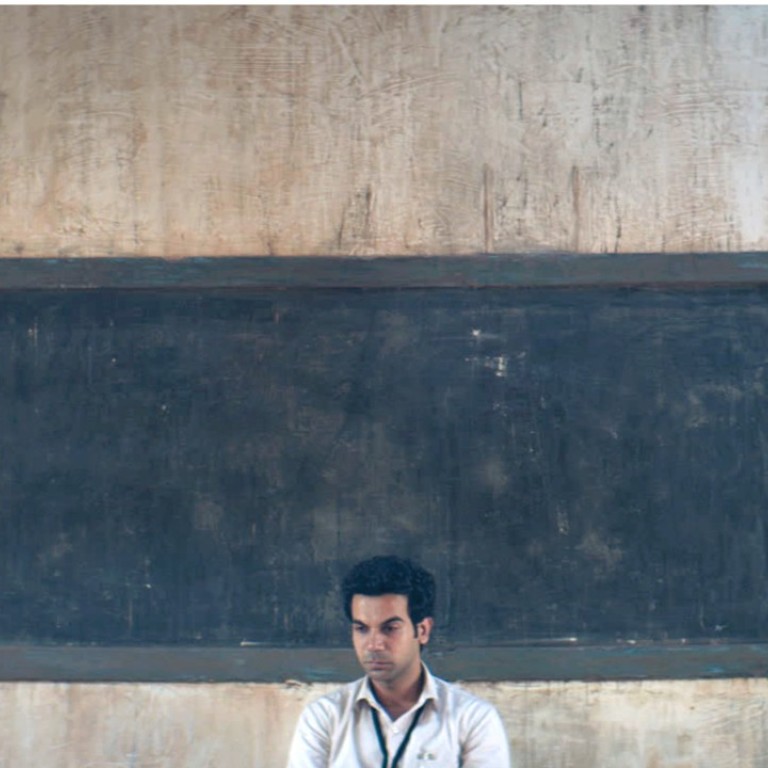
Newton by director Amit Masurkar is an endearing celebration of democracy, reminding viewers why voting matters
Humour and humanity are the hallmarks of a film set in India, the world’s largest democracy
Instead of the usual Hindi-language “masala” movie – a mix of songs, action, melodrama, comedy and romance – Newton is an intelligent drama that explores the notion of democracy with clever humour and thoughtful humanity. India is the world’s largest democracy, and Newton celebrates this fact by showing how voting rights extend to those in remote and inaccessible parts of the country.
The beauty of the film, directed and co-written by Amit Masurkar, is that it doesn’t pretend the electoral system is perfect – the hero, a government election official, must deal with ignorance, suspicion, manipulation and outright fear in his efforts to get the vote out in a small village, and even though he succeeds, the process is far from perfect. But the overriding message is that the system does work in spite of its flaws, and citizens love and respect the democratic process.
Hindi Medium film review: Bollywood education comedy comes with a message
Despite its serious theme, Newton is deft and cheerful, avoiding any polemical statements to allow its harassed protagonists to tell the story themselves. It begins with Newton (Rajkummar Rao), an idealistic government official volunteering to set up a polling station in a village in the jungle in Chhattisgarh so that the inhabitants can vote. It doesn’t help that the government has only just won back the territory from communist Naxalite guerillas, who may have warned the villagers not to vote.
When Newton’s boss tells him that he’s bringing some foreign journalists to the village so they can see the extent of India’s democracy, he has to find ways to encourage the villagers to cast their ballot. But the local police chief, who’s charged with his protection, wants Newton to abandon the mission in case the Naxalites attack the voting booth. A battle of wits ensues.
One of many interesting facets of the film is that it’s not afraid to depict India’s caste system and its ethnic minorities, or Adivasi. Masurkar also delves into local politics, showing how the villagers are ignored by the government until they become useful for something – in this case, impressing foreign journalists by turning up to vote.
Newton himself is an idealist, but the film is not soppy, as it’s actually the police chief’s threats that finally fulfil his task rather than his own gentle persuasion. All the local characters hail from the area the film was shot in, and many play versions of themselves.
“I wanted to do something about [the electoral system] because even though elections happen, there’s still a big gap between democratic principles and the way democracy functions,” Masurkar told the Awards Circuit website. The film won the Jury prize at the 2017 Hong Kong International Film Festival, and was India’s entry for the best foreign-language film Oscar the same year.
